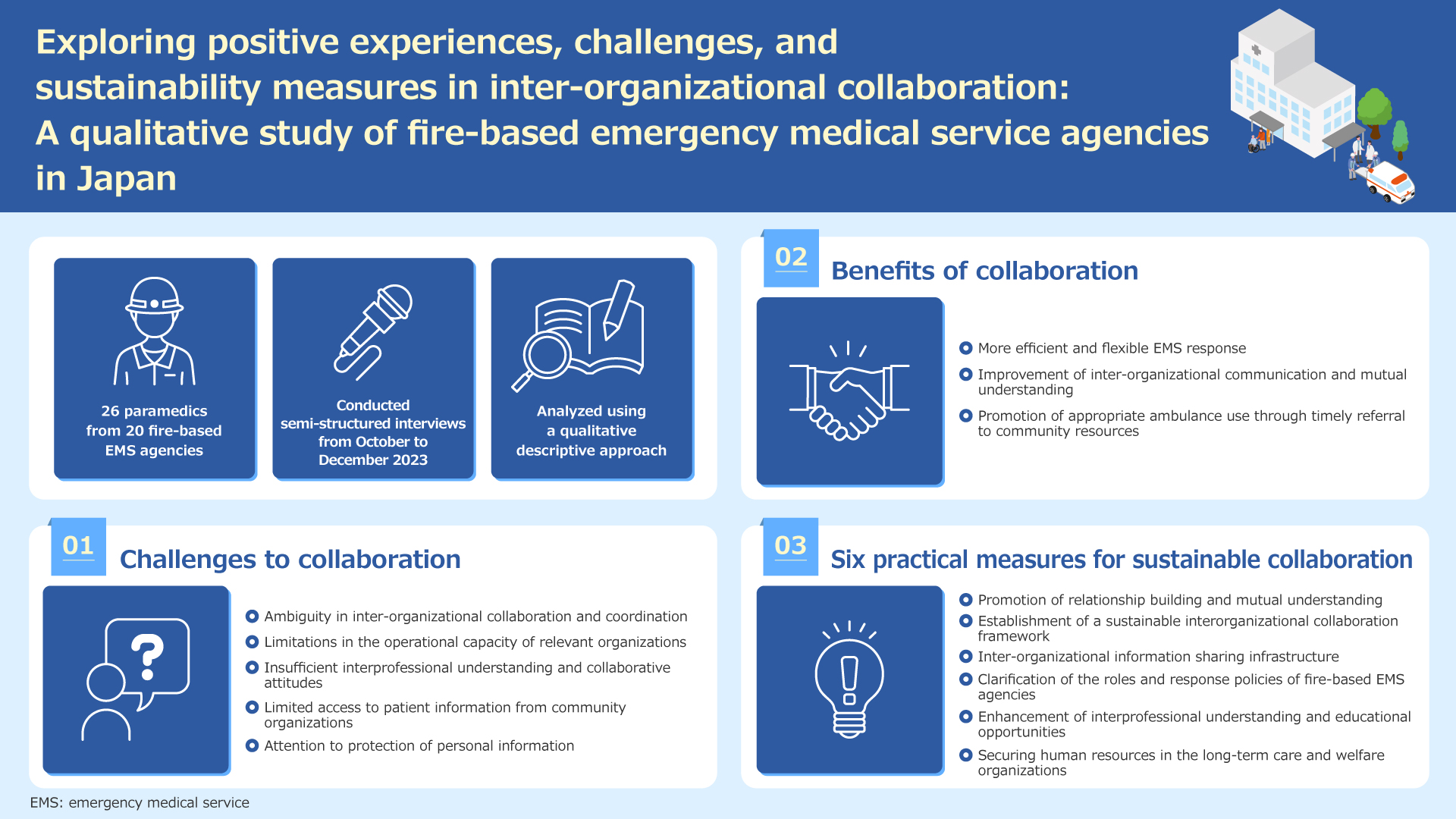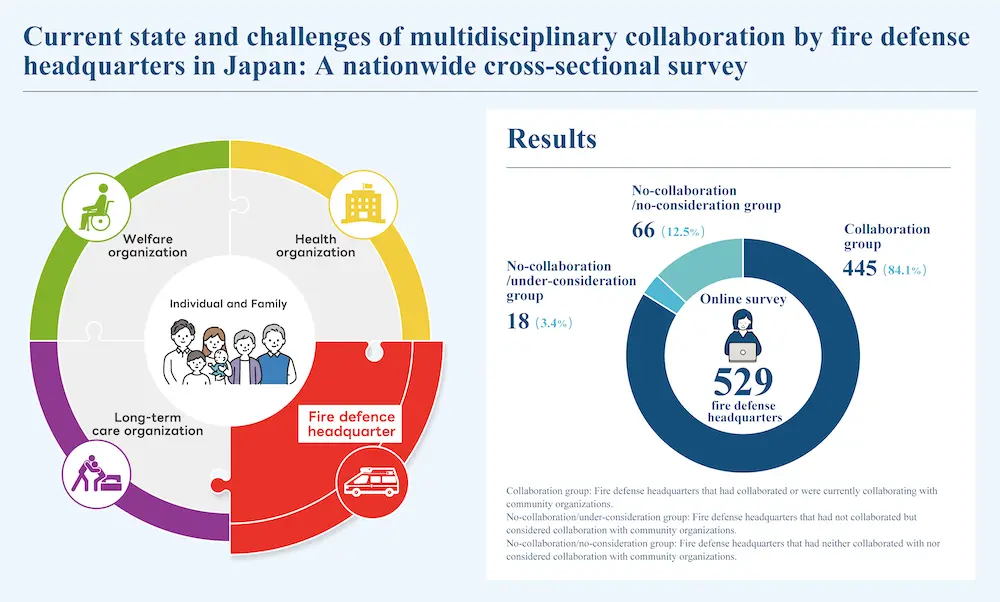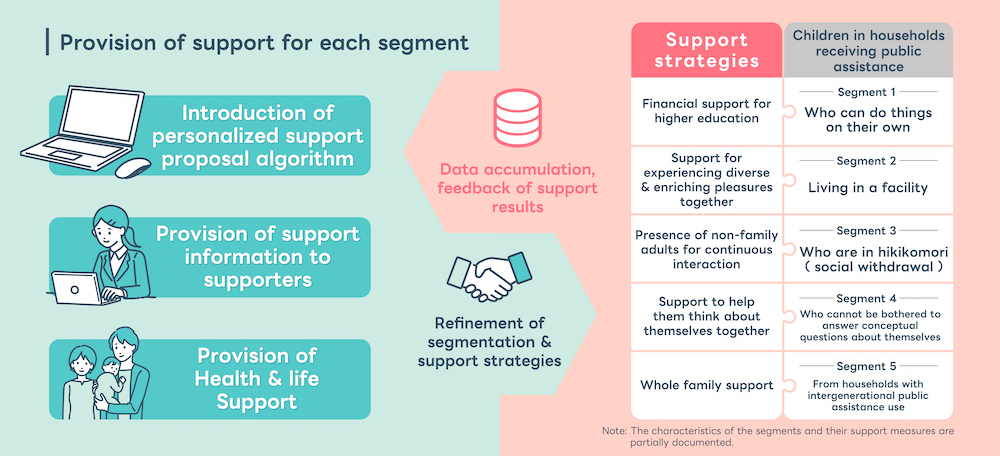Prolonged on-scene time (OST), defined as ≥ 30 min from the ambulance arrival at the scene to departure, is a major global problem in the emergency medical system (EMS). Assistant Professor Keiko Ueno conducted collaborative research with Hiroshima University, utilizing data from the ambulance transportation and request call records databases of the Higashihiroshima Fire Department over a period of seven years. They revealed that older age, female sex, fire accidents, natural disasters, motor vehicle accidents, assaults, self-injuries, number of hospital inquiries ≥ 4, and the COVID-19 pandemic were associated with prolonged OSTs among ambulance users with minor diseases or injuries. We need to reconsider how to intervene with potentially modifiable factors, such as EMS personnel performance, the impact of the presence of allied services, hospital patient acceptance systems, and cooperation between general emergency and psychiatric hospitals to improve community EMS.
Older age, female sex, fire accidents, natural disasters, motor vehicle accidents, assaults, self-injuries, number of hospital inquiries ≥ 4, and the COVID-19 pandemic are associated with prolonged on-scene time among ambulance users with minor diseases or injuries (Assistant Professor Ueno)
RELATED POSTS

Article published in Prehospital Emergency Care
2026.01.27

Our paper “Present and Future Measures to Address Health Disparities” published in Japanese Psychological Review
2025.08.30

Enhancing Community Care Through Collaboration — Findings from a Nationwide Survey of Fire Departments and Community Organizations —
2025.06.01

Tailor-Made Support for Children in Households Receiving Public Assistance: Establishing a Novel Method Toward Developing an Effective Support System
2025.04.19

Identifying subgroup characteristics of adult ambulance users with nonurgent medical conditions, using a segmentation approach
2023.12.14
Report “Investigation of the current situation and identification of issues in the collaboration between fire departments and nursing care, welfare, and healthcare organizations" has been completed.
2024.04.11
